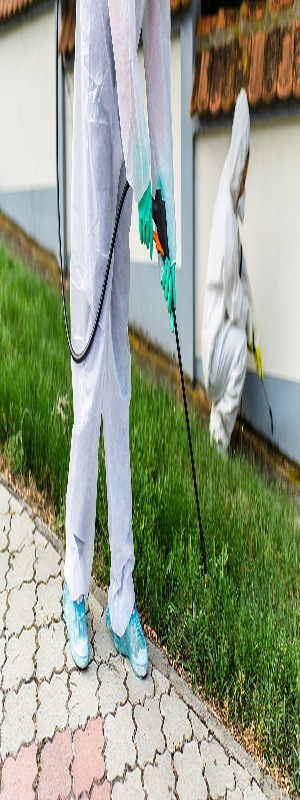Pest Control Services
Joualnabat Establishment Plant Pest Control involves managing and reducing the presence of pests that can harm plants. Pests can include insects, mites, rodents, fungi, bacteria, and weeds. Effective pest control can be achieved through various methods, often categorized into biological, chemical, cultural, and physical approaches.
1. Biological Control:
- Natural Predators: Insects like ladybugs, predatory mites, and parasitic wasps that prey on harmful pests.- Microbial Pesticides: Using bacteria, fungi, or viruses that specifically target pests without harming the plants or beneficial insects.
2. Chemical Control:
- Insecticides: Chemical substances designed to kill or repel insects. They can be synthetic or organic (e.g., neem oil, pyrethrin).- Fungicides: Used to prevent or control fungal infections in plants.
- Herbicides: Chemicals that target weeds, helping to reduce competition for nutrients and sunlight.
3. Cultural Control:
- Crop Rotation: Changing the type of crops grown in a particular area to disrupt pest life cycles.- Sanitation: Removing plant debris and weeds that can harbor pests.
- Proper Watering: Over or under-watering can weaken plants and make them more susceptible to pests. Maintaining optimal moisture levels is crucial.
4. Physical Control:
- Traps: Using sticky traps, pheromone traps, or light traps to capture pests.- Barriers: Installing nets, row covers, or fences to prevent pests from reaching plants.
- Hand-Picking: For small infestations, physically removing pests by hand can be effective.
5. Integrated Pest Management (IPM):
IPM: Combines multiple methods for a holistic approach. It focuses on long-term prevention and minimal use of chemical pesticides. This approach includes monitoring pest populations, using resistant plant varieties, and applying targeted treatments when necessary.6. Effctive Pest Control:
- Regular Monitoring: Frequently checking plants for signs of pests, including discolored leaves, holes, or visible insects.- Proper Plant Care: Healthy plants are more resistant to pests, so proper fertilization, pruning, and watering are essential.
- Early Intervention: Addressing a pest problem early can prevent widespread damage.

 AR
AR

